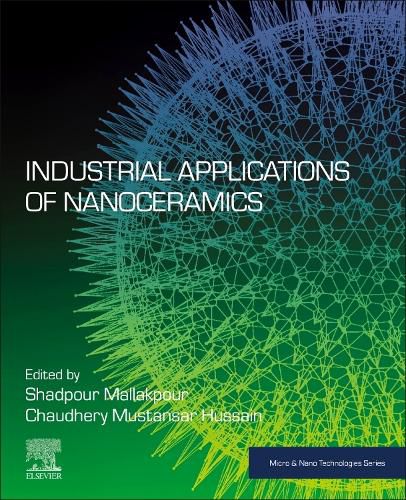Readings Newsletter
Become a Readings Member to make your shopping experience even easier.
Sign in or sign up for free!
You’re not far away from qualifying for FREE standard shipping within Australia
You’ve qualified for FREE standard shipping within Australia
The cart is loading…






Industrial Applications of Nanoceramics shows the unique processing, mechanical and surface characteristics of nanoceramics, covering their industrial application areas. These include the fabrication of capacitors, dense ceramics, corrosion-resistant coatings, solid electrolytes for fuel cells, sensors, batteries, cosmetic health, thermal barrier coatings, catalysts, bioengineering, automotive engineering, optoelectronics, computers, electronics, etc. This is an important reference source for materials scientists and engineers who are seeking to understand more about how nanoceramics are being used in a variety of industry sectors.
Nanoceramics have the ability to show improved and unique properties, compared with conventional bulk ceramic materials. Zirconia (ZrO2), alumina (Al2O3), silicon carbide (SiC), silicon nitride (Si3N4) and titanium carbide fall into this category.
$9.00 standard shipping within Australia
FREE standard shipping within Australia for orders over $100.00
Express & International shipping calculated at checkout
Industrial Applications of Nanoceramics shows the unique processing, mechanical and surface characteristics of nanoceramics, covering their industrial application areas. These include the fabrication of capacitors, dense ceramics, corrosion-resistant coatings, solid electrolytes for fuel cells, sensors, batteries, cosmetic health, thermal barrier coatings, catalysts, bioengineering, automotive engineering, optoelectronics, computers, electronics, etc. This is an important reference source for materials scientists and engineers who are seeking to understand more about how nanoceramics are being used in a variety of industry sectors.
Nanoceramics have the ability to show improved and unique properties, compared with conventional bulk ceramic materials. Zirconia (ZrO2), alumina (Al2O3), silicon carbide (SiC), silicon nitride (Si3N4) and titanium carbide fall into this category.